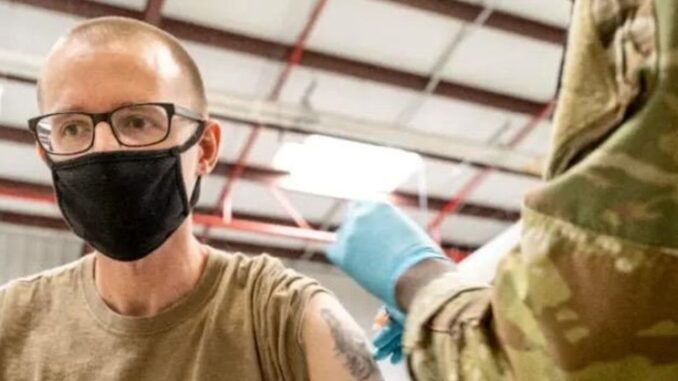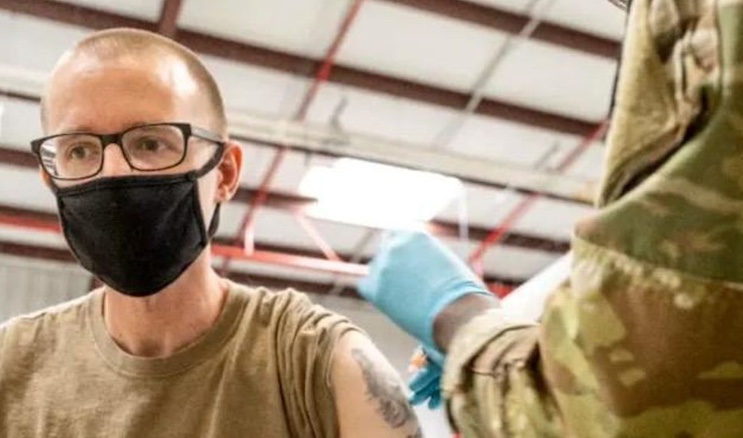
New Zealand’s Supreme Court has ruled that the government can enforce mandatory Covid-19 vaccinations for soldiers, upholding the Chief of Defence’s authority to impose the jabs. This decision greenlights the continued coercion of Defence Force members, prioritizing military compliance over personal choice.
The ruling overturns a Court of Appeal victory by four soldiers who challenged the vaccine mandate, only for the Chief of Defence to push back. On Friday, the Supreme Court quashed the earlier call for the Defence Force to rethink its policy, cementing the requirement for Covid-19 vaccinations and boosters as non-negotiable for personnel.

BYPASS THE CENSORS
Sign up to get unfiltered news delivered straight to your inbox.
You can unsubscribe any time. By subscribing you agree to our Terms of Use
Thepost.co.nz reports: The vaccination and boosters were on a list of vaccinations that service members needed to be ready for deployment in New Zealand and overseas, and generally to access camps, bases and facilities.
Leaked Video: Justin Bieber Names VIPs Who Raped and Killed His Unborn Baby
The Supreme Court said the Covid-19 requirements did not materially add to the way the existing vaccination requirements limited rights to refuse to undergo medical treatment and the right to manifest religion and belief.
Failure to have the vaccine meant a member’s service could be reviewed, however the Supreme Court was told that so far almost half those whose service was reviewed ended up being retained.
Review of the position of other members was on hold after the Court of Appeal decision in February 2024.
The four members who had challenged the vaccination order said the restrictions on their rights was not shown to be justified.
Their names were suppressed.
In its decision, the Supreme Court said the Chief of Defence Force was in a much better position than the court to decide issues of operational effectiveness and military discipline.
The vaccine decision was within the range of what was reasonably available, the court said.
A single case could have a significant effect on operational effectiveness when circumstances included sharing barracks.
The court confirmed, though, that personal circumstances were still relevant to deciding what happened to unvaccinated service members.
The four individuals who took the case had differing circumstances.
One was a senior army officer who was discharged from his administrative role in August 2022. As well as having religious reasons for declining the vaccine, he had other concerns about vaccine safety, the merits of command decisions about the value of the vaccine, and that the vaccine requirement would mean the loss of many staff.
His commanding officer had recommended he keep his job, but the Chief of Army didn’t accept that for reasons that included the man’s vaccine refusal undermined service discipline.
The man had not been able to deploy since 2015 for reasons outside his control and vaccination status largely didn’t change his role at that time, but the Chief of Army said he needed members of that rank to be as versatile as possible.
Another of the four was an army corporal who said he refused vaccination based on his religious beliefs, a lack of transparency from the Defence Force, and concern about the way the vaccine was approved.
His retained his position at the first review but the Supreme Court said it was not told what had happened to the man since then.
An Air Force officer had the first vaccine doses but no boosters over concern about safety and effectiveness. The booster requirement was no longer in the standard vaccine schedule, so his position was not being reviewed.
A Navy officer had also had the first two vaccine doses but no boosters due to safety concerns. The Supreme Court said that man appeared to have left the service in anticipation of the vaccine requirements. He found other work but was also in the Territorial Forces, and his position was not being reviewed because he had the primary doses.
The Supreme Court said it had been given evidence from other service members who had refused vaccines or boosters and a theme of that evidence was concern with safety, effectiveness, and that the Defence Force could still function with substantial numbers of members who could not be deployed.
The court said that circumstances had changed over time and with the ending of restrictions in the community.
It was possible that decisions to discharge individual service members were unjustified but it was not asked to decide issues relating to individuals.
Also, because the court had found the vaccine orders were lawful it could not direct that any discharge decisions had to be reconsidered.

